21 Things to Know Before You Start a Blog in 2015
Blogs — every business has them these days, or wants to have one. Why? Blogs aren’t just for teens interested in discussing the latest Justin Bieber YouTube video. They’re actually an incredibly important asset for improving website rankings, and showcasing a company’s knowledge and brand. Just how important are blogs for rankings? Studies have shown that companies that regularly blog experience an average of 53% more web traffic.
On a very basic level, onsite blogs put words on your website that Google can crawl through. A website with almost zero words — an extreme example — would have a difficult time ever ranking high simply because Google has little idea of how to sort it. Companies that blog have, on average, 434% more indexed pages for Google (and other search engines) to use.
It’s not all fun and search engine optimizing, though. One of the biggest mistakes you can make is jumping into your blog without having any idea of what you should be doing — especially since the playing field has changed a bit in recent years. Here are 21 things to know before you start a blog in 2015.
Titles: Your First Chance to Grab Them
1. Writing about your amazing new flower shop? “Flowers: The Basics” isn’t going to get anyone clicking, and getting them to click is half the battle. “Five Things You Never Knew About This Popular Flower” is not only more descriptive — it asks a question, and promises an answer.
2. What are some other easy, catchy ways to formulate a title? Draw it back to the reader: “What Type of Flower is Right for Your Home?” Give them a reason to care — “Six Flowers Dog Owners NEED to Avoid.”
3. When possible, use relevant blog keywords in your title — so long as it isn’t awkward.
4. Don’t go past 55 characters — past this and your full title will not be visible in search engine results.
Visuals: Make it Pop
5. You want pictures in your blog if possible — 90% of the information our brains process is visual in nature.
6. Images are great, but they should be relevant. If your web design and marketing blog is accompanied by a picture of a snail, your potential clients are going to wonder if you know what you’re doing.
7. Just because it’s on Google, doesn’t mean it’s free. You can’t just copy paste any image you find — this can set you up to be sued. Several websites, like Flickr, offer a wide variety of Creative Commons license photos — meaning you can use them for free, so long as there’s permission.
8. According to blogging expert Jeff Bullas, blogs with images get 94% more views on average.
Spacing: Let it Breathe
9. Everyone hates big blobs of text. Accurate spacing is a must. Studies have shown that the average internet user skims text rather than fully reading — appropriate use of white space will help them find what they’re looking for on your blog.
10. A good rule of thumb for blogging: three to four sentences per paragraph. No more.
11. Ever notice how lists grab your attention? Not only are they good for readers, but they’ll make it easier for you to organize your thoughts.
Content: Stay on Point
12. Know your audience. This refers to both tone, but also referencing and how you frame your blog posts. Millennials will relate financing to student loans, but Baby Boomers will be thinking about retirement.
13. Stay relevant. If you’re blogging every week, tie in your blog to recent events. It will help distinguish your blog from the white noise of “evergreen” blog posts.
14. Over the past few years, Google’s algorithm updates have definitely rewarded informative, well-written posts. Don’t see your blog as just another chance to insert an ad — it’s a real opportunity to connect with your audience (and potential clients). Unique, informed content that showcases your expertise is the way to go.
Design — the Nitty Gritty
15. Your blog should be easy to read — too many distracting sidebars, videos, moving images etc. will likely annoy your readers.
16. Your blog should be optimized with a call-to-action prompt. What’s that? An example is a window that pops up asking you to subscribe to the blog, or get added to a free company email subscription. Call-to-actions help improve conversion rates (turning visitors into paying customers). Google’s feedburner can help you out with this.
17. Time is money, and this is true for blogs. You might not think it’s a big deal if your blog takes five seconds to load — yet this could be dramatically increasing your bounce rate (people leaving your website). Studies have shown that 40% of visitors will abandon a website if it takes just three seconds to load.
18. Your blog should be optimized for mobile. Don’t put this one off until tomorrow, because it’s only getting more and more important. Mobile commerce is now a $84 billion market, and 116 million Americans now use smartphones. More importantly: Google made it clear in their recent update that mobile-website blogs will do better in search rankings, going forward.
Three Final Tips You Can’t Ignore
19. Be consistent, and don’t kid yourself. Have you never been the type who could write twice a week? Don’t wait until your blog hasn’t been updated in months — hire someone, or an internet marketing company, to produce relevant content for you. This will help you build your search rank steadily over time. Google anything today, and you’ll notice that newer posts tend to rise to the top, while older posts slowly creep backward in search results.
20. Don’t copy content, ever. You might find a post you love on another blog or website and think it’s okay to use it — especially if you give the other site credit (attribution), right? Wrong. Google doesn’t care, and will count this as duplicate copy when it crawls your site — which means it doesn’t help your search engine rank much at all.
21. If you’re having trouble coming up with blogging ideas, you can actually use search engines to help you formulate topics. Search engines like Google and Bing will auto-fill with popular searches once you start typing. Type in keywords relevant to your website, and you can get an idea of the type of content your audience is hyper-drawn to. For example, if you Google the phrase “buying flowers,” you realize there is a huge interest in “buying flowers in bulk for weddings.” Cater to this and watch your search rank climb.
Blogging can seem intimidating at first, but with time and practice it’s not only fun — it’s a great way to improve your website’s search engine rank, and therefore, your business’s bottom line. If you are interested in starting a blog in 2015, feel free to contact us!




